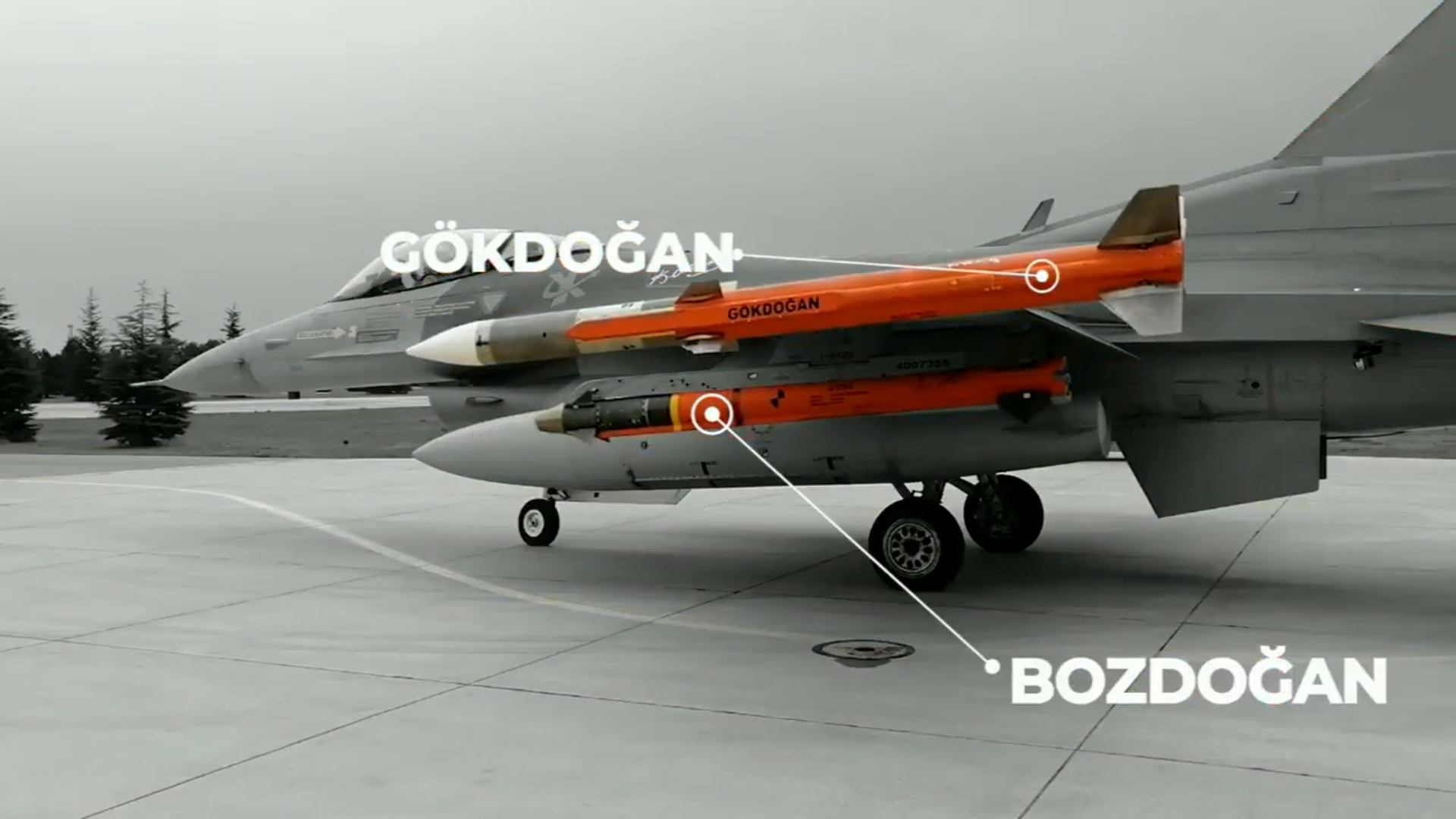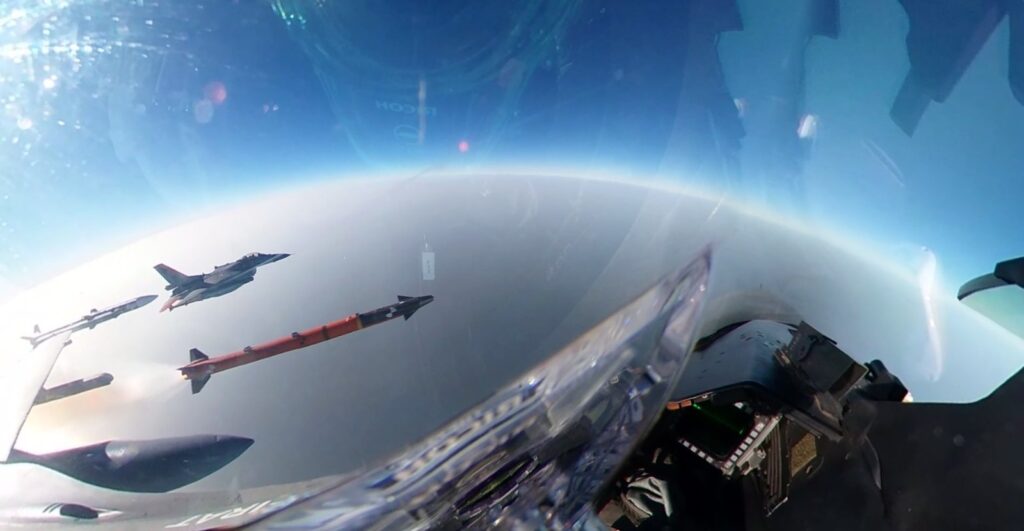
Introduction
The Pakistan Air Force (PAF) is changing its strategy for missiles by stopping the use of US-made AIM-120 Advanced Medium-Range Air-to-Air Missiles (AMRAAM) and AIM-9 Sidewinder missiles. Instead, Pakistan will use missiles from Turkey.
Delays in obtaining US approval for a new arms deal with Pakistan, along with ongoing geopolitical issues, have led to this shift. Turkey’s advanced missile systems can interface with NATO equipment like the F-16. Thus, they serve as a practical choice for the PAF’s air-to-air missile needs.
Geopolitical Issues Prompt Pakistan to Choose Turkish Missiles
The decision to find alternatives to US missiles comes after years of complicated US-Pakistan defense relations. The use of AMRAAMs by Pakistan in the 2019 Balakot incident with India raised tensions, putting a strain on US-Pakistan defense relations.
During the Afghanistan conflict, the US provided AMRAAMs for counter-terrorism and border security, not traditional warfare. The US expressed concern about the potential misuse of these weapons in disputes with neighbouring countries, particularly India.

Because of these diplomatic issues and limits on weapon supplies, Pakistan has turned to Turkey, known for being a dependable defense partner. This change gives Pakistan realistic air-to-air missile options and improves military relations between the two nations.
Turkey’s missile systems, developed by its Scientific and Technological Research Council (TÜBİTAK SAGE), fit well with platforms like the F-16, making them suitable for the PAF’s older fleet.
The Gökdoğan and Bozdoğan Missiles: Enhanced Capabilities
Pakistan’s F-16 fleet, which has about 57 Block-15/30 aircraft, will now include two Turkish-made air-to-air missiles: the Gökdoğan and Bozdoğan. These missiles address the evolving needs of the PAF, replacing the US-made AIM-120 AMRAAM and AIM-9 Sidewinder missiles that have been in use for a long time.
Gökdoğan: A Long-Range BVRAAM with Advanced Guidance
The Gökdoğan is a long-range, beyond-visual-range air-to-air missile (BVRAAM) made to hit enemy aircraft from far away. It has advanced radar guidance and a dual-pulse rocket motor, allowing for precise targeting. Adding the Gökdoğan to Pakistan’s F-16 fleet will boost the PAF’s ability to engage enemy fighters from a distance, which is a major advance over the US-made AMRAAMs.
Bozdoğan: A Heat-Seeking Short-Range Missile for Close Combat
The Bozdoğan is a short-range, infrared-guided air-to-air missile (SRAAM) made for agile close-range dogfights. This missile is a modern alternative to the AIM-9 Sidewinder, long a key part of the PAF’s gear.
The Bozdoğan can accurately track and target at close range, improving the PAF’s effectiveness in combat scenarios where quick movement and swift targeting are essential. With both the Gökdoğan and Bozdoğan, Pakistan will gain stronger and more modern air-to-air missile capabilities, making its F-16 fleet more adaptable and combat-ready.
Challenges in Upgrading Pakistan’s F-16 Block-15 Fleet
Although Pakistan’s F-16 Block-15 aircraft are older, they remain vital to the country’s air combat strength. However, these aircraft need major upgrades to properly use modern missile systems, such as the AMRAAM and new radar. Integrating the Gökdoğan and Bozdoğan missiles into the F-16 fleet will require adjustments to the aircraft’s avionics and weapon systems. This task presents both technical and logistical challenges.

These upgrades will help maintain the Block-15 fleet’s activity, but they also highlight a broader issue regarding Pakistan’s reliance on older platforms. While the US has often backed Pakistan’s modernisation of its air force, recent delays in weapons sales and growing issues in US-Pakistan relations have pushed Pakistan to seek other options.
Turkey’s missile systems give a practical answer to this issue. Adding the Gökdoğan and Bozdoğan missiles will boost the PAF’s ability to fight, making sure its F-16s work well against advanced opponents, especially in a region where air control is essential.
Strengthening Pakistan-Turkey Defense Relations
The decision to add Turkish missile systems boosts Pakistan’s air force and deepens defence ties between the two allies. Turkey has recently become a crucial defence partner for Pakistan, providing cooperation in aviation, naval systems, and missile technologies.
This agreement is a significant achievement for Turkey because it showcases the strength of its growing defence industry. The Gökdoğan and Bozdoğan missiles, developed by TÜBİTAK SAGE, highlight Turkey’s rising capabilities in modern military technology.
By providing Pakistan with these advanced missiles, Turkey expands its influence in the competitive South Asian arms market. For Pakistan, this deal secures a reliable, politically neutral supplier of advanced military technology.
It also reduces Pakistan’s reliance on the United States for critical defence systems. With Washington shifting focus to the Indo-Pacific and tensions with Pakistan increasing, Turkey offers a more dependable partnership. This cooperation allows Pakistan to maintain its military strength without suffering from outside political pressure.
The Future of Pakistan’s Air Defense Planning
As Pakistan works to update its air force, the move toward Turkish missiles shows a larger trend in its defense planning: diversifying its sources for defense. Given the increasing geopolitical risks, particularly those concerning India and the broader region, Pakistan’s defence strategists acknowledge the necessity of seeking alternative suppliers for essential military technologies. By reducing reliance on US-made weaponry, Pakistan aims to keep a strong and independent air-fighting ability.

Furthermore, adding the Gökdoğan and Bozdoğan missiles to Pakistan’s F-16 fleet is only one part of a larger plan to modernise the entire defense system. In the following years, Pakistan will likely continue seeking other options to upgrade its air and ground forces, focusing on improving both the quality and variety of its military tech.
Conclusion: A Strategic Choice for Pakistan’s Air Strength
The choice to swap US-made missiles for Turkish ones is an important change for the Pakistan Air Force. By adding Gökdoğan and Bozdoğan missiles to F-16s, Pakistan boosts air combat power and deepens ties with Turkey. This move highlights Pakistan’s growing focus on self-reliance and broader defense options.
Switching to Turkish missiles comes at a key moment, as Pakistan works to maintain air superiority in a tense region. With U.S. ties under strain, Turkish tech gives Pakistan a smart way to upgrade without U.S. restrictions. As the defense landscape shifts, Pakistan’s partnerships with countries like Turkey could shape the region’s future security.
References
- Defence News (2024). “Pakistan’s Strategic Shift: Replacing US Missiles with Turkish Alternatives.”
- The Diplomat (2024). “Pakistan-Turkey’s Defence Collaboration Grows Amid Geopolitical Challenges.”
- Aerospace and Defence Technology Review (2024). “The Gökdoğan and Bozdoğan Missiles: Turkey’s Contribution to Global Defence”







